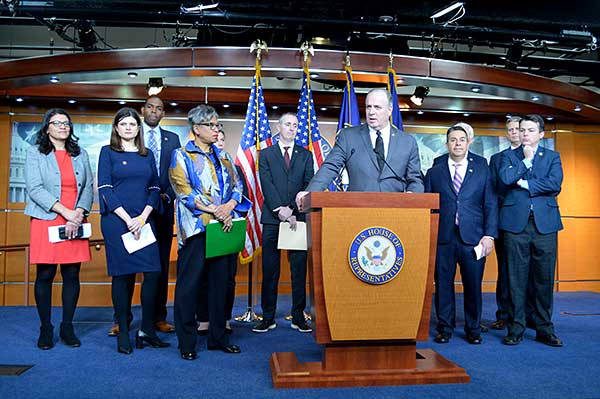
After much deliberation, the U.S. House of Representatives passed the PFAS Action Act on January 10th, a bill that would establish federal regulations for these toxic, persistent chemicals and compel the cleanup of contaminated areas. The Act would impose the most strict PFAS regulatory standards to date. It would designate two common types of PFAS—PFOA and PFOS—as hazardous substances, thus requiring the EPA to establish drinking water regulations for them under the Safe Drinking Water Act, add them to the Toxic Release Inventory, and list them as hazardous air pollutants.
It would also limit industry use and require polluters to clean up PFAS contamination under the Superfund law, provide for some monitoring, testing, and funding, prohibit burning PFAS for disposal, and minimize the use of firefighting foam and other equipment containing the chemicals.
The bill contains measures that were removed in December from the originally proposed national defense spending bill, due to lack of consensus. Opposition to the original bill was mainly from Republicans, claiming it would bypass regulatory processes and impose unnecessary costs on the Department of Defense, Environmental Protection Agency, and other federal agencies. It still faces strong opposition from Republicans in the Senate and executive branch, as it moves on to the Senate floor.
“For the first time in agency history, we utilized all of our program offices to construct an all-encompassing plan to help states and local communities address PFAS and protect our nation’s drinking water,” said EPA Administrator Andrew Wheeler. After passing with 247 votes in the House, lawmakers on the PFAS Task Force are trying to bring opposing Senators onboard, to avoid a lengthy deliberation for the vote in the Senate.

